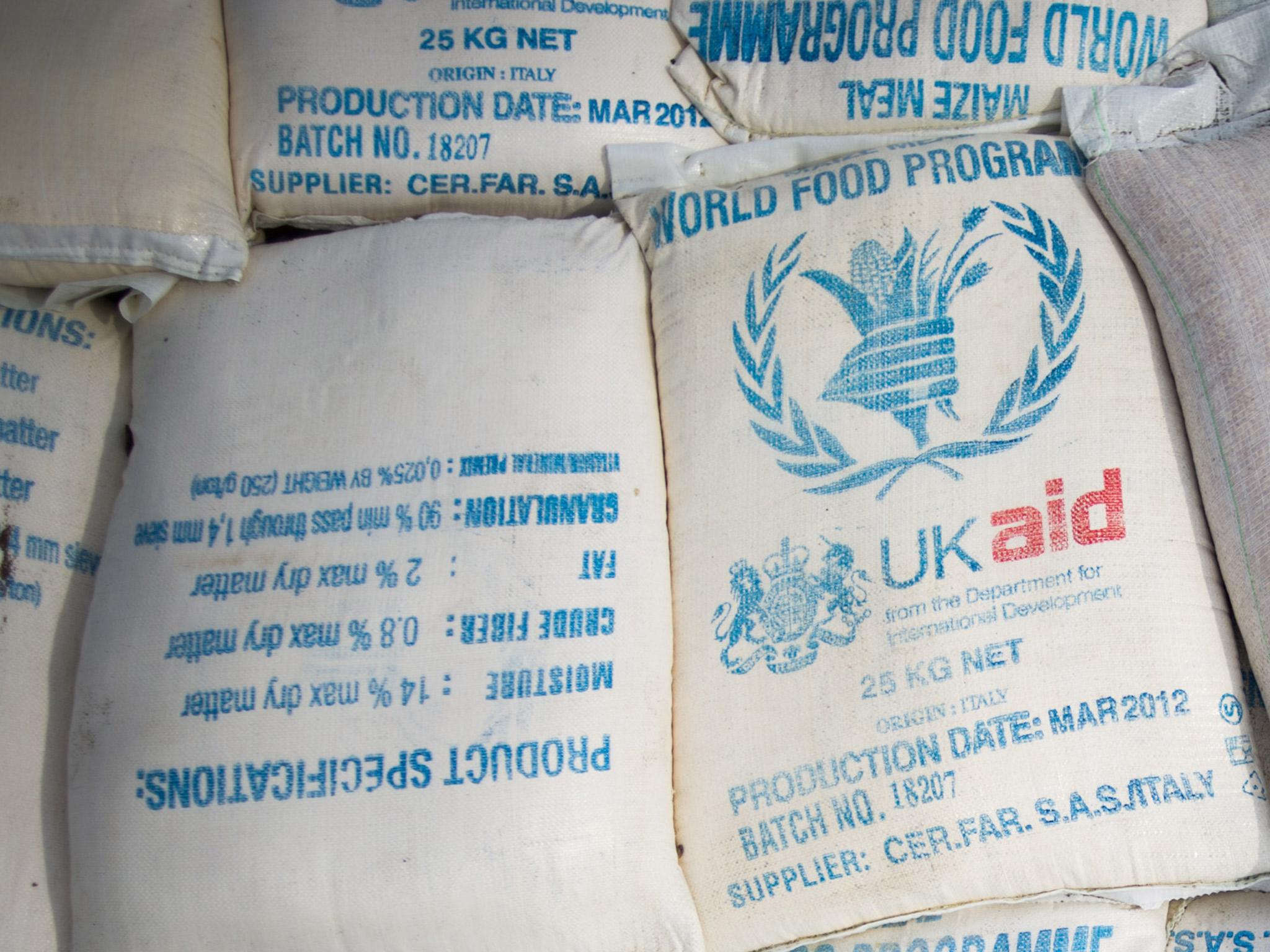This is why the foreign aid budget must be protected – whatever the result of the general election
Britain’s commitment to aid offers great strength and stability. Aid helps to guarantee that, wherever Brexit leads, Britain will in this area, at least, hold its head high and make a practical contribution to the drive for a more secure and sustainable global order


Your support helps us to tell the story
From reproductive rights to climate change to Big Tech, The Independent is on the ground when the story is developing. Whether it's investigating the financials of Elon Musk's pro-Trump PAC or producing our latest documentary, 'The A Word', which shines a light on the American women fighting for reproductive rights, we know how important it is to parse out the facts from the messaging.
At such a critical moment in US history, we need reporters on the ground. Your donation allows us to keep sending journalists to speak to both sides of the story.
The Independent is trusted by Americans across the entire political spectrum. And unlike many other quality news outlets, we choose not to lock Americans out of our reporting and analysis with paywalls. We believe quality journalism should be available to everyone, paid for by those who can afford it.
Your support makes all the difference.Elections are a time to debate differences between parties. But sometimes it is important to highlight shared commitments. The confirmation of continued cross-party support for international development – symbolised and substantiated by spending 0.7 per cent of national income on aid – is noteworthy.
Aid isn’t delivered perfectly: we need more rigorous gathering of evidence about what has the greatest impact, more innovation and better coordination. But relentless and disproportionate attacks from parts of the media and the hard right overlook the good that aid does, the lives that it saves, day in day out. A commitment to aid is a stake in the ground for internationalism and human dignity, and a welcome blowback against the forces of nativism and selfishness that call for charity to end at home.
There are three reasons why this continued commitment to British aid – targeted at those who need it most – matters.
First is the difference that aid makes to people who live in poverty, conflict or fear of persecution. Despite British aid spending being only one-tenth the NHS budget, it is transformative for people facing starvation in South Sudan, for children dying from cholera in Yemen, and for Syrians fleeing death and destruction. These are people just like us, with homes, families, jobs and ambitions.
In the last year alone British aid immunised 67.1 million children against preventable disease and provided vital food and nutrition for 30 million pregnant women and children under five. In 2016, British aid allowed the International Rescue Committee to educate 11,000 Syrian children and provide health consultations for a further one million Syrians.
Many of these people have lost their homes, they have fled to already fragile and resource-poor countries like Lebanon and Jordan, and British aid has a vital, stabilising effect. But more importantly it is humanising and it is dignifying. To suggest that Britain would abandon these people now should be unthinkable. When we can help people, we do; we don’t turn away when there is suffering.
The second reason why this standing commitment to aid matters is that it gives the government predictability, enabling it to plan and deliver aid more effectively, and to react immediately when a disaster strikes.
The reality is that while humanitarian aid is often driven by crisis, it deals with challenges that are by nature long-term, from migration and climate change to the spread of disease. Too often, aid programmes are cut short before the results are seen. Humanitarian grants can last a matter of months, despite the fact that people forced to flee their homes are unlikely to be able to return for at least a decade. Knowing the budget for the next parliamentary term ought greatly to assist the government’s ability to make headway when facing long-term challenges.
It is vital too that an independent Department for International Development oversees the allocation of the standing commitment, to ensure that it serves the best interests of people in need and isn’t diverted for other aims.
Third is the positive impact that aid has on Britain’s global standing at an anxious time for our country.
Aid plays a crucial role in building a truly global Britain. Aid commitments are visible proof of Britain’s goodwill and humanity but also proof that, as the world’s fifth largest economy, we take seriously our associated responsibilities to the rest of the world, and we care about the influence and reach this earns us.
Britain’s commitment to aid offers great strength and stability. Aid helps to guarantee that, wherever Brexit leads, Britain will in this area, at least, hold its head high and make a practical contribution to the drive for a more secure and sustainable global order. This is about head and heart together.
Whatever the election result, the Brexit negotiations ahead hold much uncertainty. British aid should be a source of pride. It is also a practical demonstration of what it means to understand interdependence as well as independence in the modern world.
David Miliband is president and CEO of the International Rescue Committee. Andrew Mitchell is the former International Development Secretary and a leading humanitarian and development expert
Join our commenting forum
Join thought-provoking conversations, follow other Independent readers and see their replies
Comments